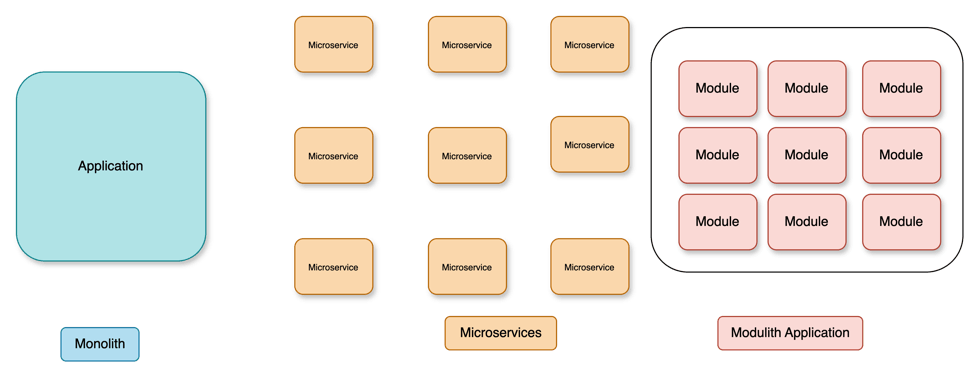#microservices
#microservices
[ follow ]
DevOps
fromInfoWorld
2 weeks agoFrom distributed monolith to composable architecture on AWS: A modern approach to scalable software
Migrating distributed monoliths to a composable AWS architecture yields loosely coupled, autonomous services that improve scalability, resilience, deployment velocity, and team autonomy.
fromInfoWorld
1 month agoMicrosoft's Dev Proxy puts APIs to the test
Much of modern application development depends on APIs. In the past we may have built massive monolithic applications, but modern cloud-native development depends on collections of microservices, linked by APIs that offer everything from remote procedure calls to database operations. This approach makes applications easier to run, allowing them to scale with user demand. It also makes them more reliable, handling failover in the event of data center outages.
Software development
fromInfoWorld
2 months agoWhere AI meets cloud-native computing
In the past decade, we've seen two major advances in software development: cloud-native architecture and artificial intelligence. The first redefined how we build, deploy, and manage applications, and the second is becoming a mainstream utility. Now, the two are converging, prompting developers to reevaluate both their skill sets and architectural strategies. This convergence isn't just future talk. It's today's competitive reality.
DevOps
fromTheregister
2 months agoAtlassian's DR simulation showed it lived in dependency hell
Australian collaborationware company Atlassian has revealed it's spent four years trying to reduce dangerous internal dependencies, and while it has rebuilt its PaaS, it still has issues - but thinks they're now manageable. As explained in a Tuesday post by Senior Engineering Manager Andrew Ross, "Atlassian runs a large service-based platform with thousands of different services, most deployed by our custom orchestration system, 'Micros'."
DevOps
Software development
fromInfoQ
2 months agoFive Hard Lessons from Recovering a Catastrophic Microservices Migration
Successful architectural recovery requires balancing technical fixes with perception management, incremental delivery, transparency, and team credibility to restore system stability and business value.
Software development
fromInfoQ
2 months agoScaling API Independence: Mocking, Contract Testing & Observability in Large Microservices Environments
API mocking and simulation can reduce coupling and restore engineering productivity in large-scale microservices when paired with supporting techniques and thoughtful design.
fromVue.js Jobs
3 months agoSenior Fullstack Developer PHP & Vue (f/m/d) at Arsys - VueJobs
Develop, maintain, and optimize frontend and backend applications following best engineering practices. Build reusable and responsive UI components using Vue3, Bootstrap, TypeScript, HTML, and CSS. Develop robust backend services using PHP 8, ORMs (Eloquent, Doctrine), SQL Server, and MySQL. Design and implement RESTful APIs and microservices in asynchronous environments using RabbitMQ or other message brokers. Ensure high code quality through TDD, unit testing, and compliance with PSR-12, Psalm, and PHPStan standards. Apply DDD, Hexagonal Architecture, OOP, SOLID principles, and design patterns throughout all developments.
Web development
fromInfoQ
3 months agoHow to Enable Testing a Distributed System on a Single Environment Using Proxy Routing
They had previously invested in a homegrown command line interface program that would run their entire environment on a continuous integration runner, but it turned out it took 15-30 minutes to get the framework up before even running a test, Chia said. There were also build failures from time-outs, and the developer of the system left the company, and nobody knew how to maintain it.
Software development
fromStavros
3 months agoWhy is everything so scalable?
the stack of every single company I've seen is invariably AWS/GCP with at least thirty microservices (how else will you keep the code tidy?), a distributed datastore that charges per query but whose reads depend on how long it's been since the last write, a convoluted orchestrator to make sure that you never know which actual computer your code runs on, autoscaling so random midnight breakages ensure you don't get too complacent with your sleep schedule.
Software development
fromInfoQ
4 months agoImpulse, Airbnb's New Framework for Context-Aware Load Testing
Airbnb has developed Impulse, an internal load testing framework designed to improve the reliability and performance of its microservices. The tool enables distributed, large-scale testing and allows engineering teams to run self-service, context-aware load tests integrated with CI pipelines. By simulating production-like traffic and interactions, Impulse helps engineers identify bottlenecks and errors before changes reach production. According to the Airbnb engineering team, Impulse is already in use in several customer support backend services and is under review for broader adoption.
DevOps
Tech industry
fromComputerWeekly.com
5 months agoBT Group ramps up its cloud transformation efforts with another five-year AWS deal | Computer Weekly
BT Group signed a new five-year strategic AWS agreement to accelerate cloud-native modernization, moving legacy systems to customer-centric microservices aligned with TM Forum ODA.
fromInfoQ
5 months agoTimeouts, Retries and Idempotency In Distributed Systems
I'm going to be talking about something very basic, which is almost like the fundamental ideas that I think that every developer should know if they're unfortunate enough to have to work on a distributed system, which is probably most of you. The reason I've written this talk is because I'm working on a book, which is designed as like, you've been dropped onto a project where somebody ill-advisedly made the choice to use microservices, which is always a terrible idea.
Software development
fromNew Relic
6 months agoIdentify and troubleshoot application errors using New Relic
When something breaks, the impact isn't always obvious right away. What starts as a few 500 errors in one service can quickly snowball into failed transactions, frustrated users, and revenue loss.
Software development
fromInfoQ
5 months agoBackend FinOps: Engineering Cost-Efficient Microservices in the Cloud
Integrating FinOps early in microservices architectures leads to significant reductions in both cloud costs and operational inefficiencies, creating a more cost-effective environment for organizations.
Tech industry
fromSitePoint Forums | Web Development & Design Community
6 months agoSenior dev seeking architecture best practices for CI/CD across microservices
A standardized CI/CD pipeline for microservices should address key challenges such as coordinating cross-service releases, managing backward compatibility, and preventing configuration duplication.
Node JS
Software development
fromSitePoint Forums | Web Development & Design Community
6 months agoAdvanced Techniques for Handling Asynchronous Deadlocks in .NET Microservices?
Effective management of asynchronous programming is essential for preventing deadlocks and thread starvation in distributed .NET microservices.
[ Load more ]















